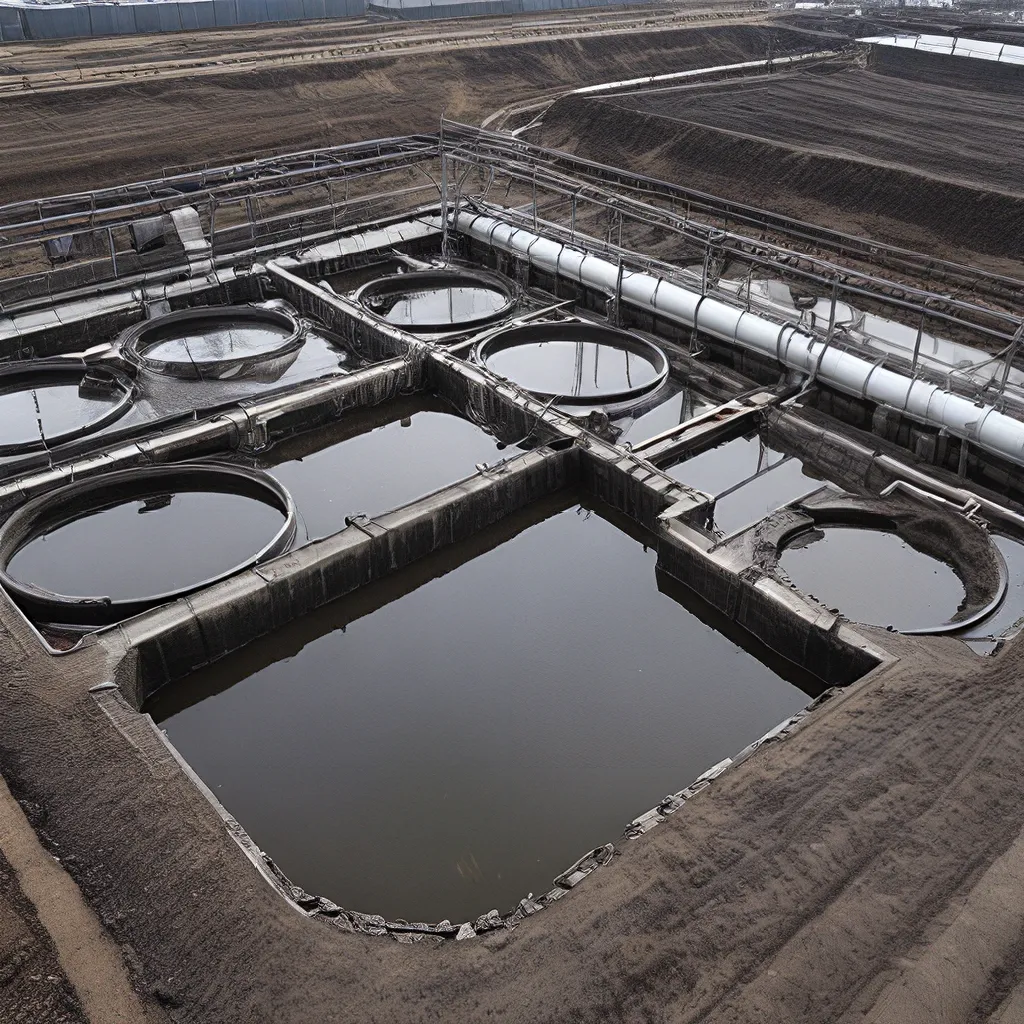
Unlocking the Power of Sustainable Sludge Management
As a wastewater treatment professional, I’ve had the privilege of seeing firsthand how the industry is evolving to become more environmentally conscious. One area that has caught my attention is the growing emphasis on sustainable sludge management. This fascinating topic not only holds the key to reducing our environmental impact but also presents a wealth of untapped opportunities for cost savings and operational efficiency.
In this article, I’ll take you on a deep dive into the world of sludge management, exploring the cutting-edge technologies and innovative approaches that are transforming the way we handle this crucial byproduct of the wastewater treatment process. Get ready to discover how embracing sustainable sludge management can benefit your facility, the environment, and your bottom line.
Understanding Sludge: The Unsung Hero of Wastewater Treatment
Sludge is often the unsung hero of the wastewater treatment industry. It refers to the residual solids that result from the treatment of wastewater, and its proper management is crucial to preventing environmental pollution. This sludge can contain a wide range of contaminants, from heavy metals to harmful pathogens, making it a complex and challenging byproduct to handle.
Historically, the management of sludge has been a significant challenge for wastewater treatment facilities. Landfilling, incineration, and land application have been common practices, but these methods often come with their own environmental and financial drawbacks. As public awareness and environmental regulations have evolved, the industry has recognized the need for more sustainable sludge management approaches.
The Rise of Sustainable Sludge Management
More and more lagoon owners are embracing sustainable sludge management approaches that reduce the water content onsite to control the cost of transportation and disposal. Biodredging, for example, is a technique that can effectively remove built-up biosolids from lagoons, making the sludge easier to manage and reducing the overall environmental impact.
Another innovative approach is the use of emerging technologies in the sludge management industry. These cutting-edge solutions are helping wastewater treatment facilities optimize their operations, reduce costs, and minimize their environmental footprint. From advanced dewatering techniques to nutrient recovery processes, the possibilities for sustainable sludge management are truly exciting.
Embracing the Circular Economy: Sludge as a Resource
One of the most exciting aspects of sustainable sludge management is the concept of the circular economy. Instead of viewing sludge as a waste product, forward-thinking facilities are recognizing it as a valuable resource that can be repurposed and reused.
Through processes like anaerobic digestion, sludge can be converted into biogas, which can then be used to generate renewable energy for the facility. This not only reduces the facility’s reliance on fossil fuels but also creates a revenue stream from the sludge itself.
Sustainable manufacturing practices, like the effective management and treatment of wastewater, are becoming increasingly important in industries like microchips. As more and more companies embrace the circular economy, the demand for innovative sludge management solutions will only continue to grow.
The Economic and Environmental Benefits of Sustainable Sludge Management
The advantages of embracing sustainable sludge management go far beyond just environmental benefits. There are significant economic incentives for wastewater treatment facilities to adopt these practices as well.
Cost Savings:
– Reduced transportation and disposal costs by minimizing the volume of sludge
– Revenue generation from the repurposing of sludge, such as through biogas production
– Potential tax incentives or government subsidies for implementing sustainable practices
Operational Efficiency:
– Improved process control and optimization through advanced sludge management technologies
– Reduced maintenance and equipment costs by preventing issues like lagoon build-up
– Increased capacity and throughput by effectively managing sludge volumes
Environmental Impact:
– Reduced greenhouse gas emissions from sludge disposal and transportation
– Decreased risk of environmental contamination by properly managing hazardous sludge components
– Contribution to the circular economy by repurposing sludge as a valuable resource
Navigating the Challenges of Sustainable Sludge Management
Of course, the transition to sustainable sludge management is not without its challenges. Wastewater treatment facilities may face hurdles such as:
- Technological Barriers: Implementing new, unfamiliar technologies can be a daunting task, requiring significant investment and employee training.
- Regulatory Compliance: Navigating the complex web of environmental regulations surrounding sludge management can be time-consuming and costly.
- Budgetary Constraints: The upfront costs of adopting sustainable sludge management practices may be a barrier for some facilities, especially smaller ones.
However, the long-term benefits of these practices often outweigh the initial challenges. By taking a proactive approach and exploring the range of emerging technologies and innovative strategies available, wastewater treatment facilities can overcome these obstacles and reap the rewards of sustainable sludge management.
Embracing the Future of Sludge Management
As I reflect on the rapid advancements in the sludge management industry, I can’t help but feel excited about the future. The potential for sustainable, cost-effective, and environmentally friendly solutions is truly remarkable.
Whether it’s through advanced dewatering techniques, nutrient recovery processes, or biogas production, the opportunities to transform sludge from a waste product into a valuable resource are endless. And as more facilities embrace these innovative approaches, the industry as a whole will continue to evolve and become more sustainable.
Of course, the path forward is not without its challenges, and there is still much work to be done. But by staying informed, embracing new technologies, and prioritizing environmental responsibility, I’m confident that wastewater treatment facilities can lead the way in sustainable sludge management.
So, if you’re ready to unlock the power of sustainable sludge management, I encourage you to explore the resources available and consider how your facility can benefit from these cutting-edge solutions. The future is bright, and the time to act is now.
And as always, if you need any assistance with your wastewater treatment needs, don’t hesitate to reach out to our team. We’re here to help you navigate the complex world of sludge management and ensure that your facility is operating at its best.